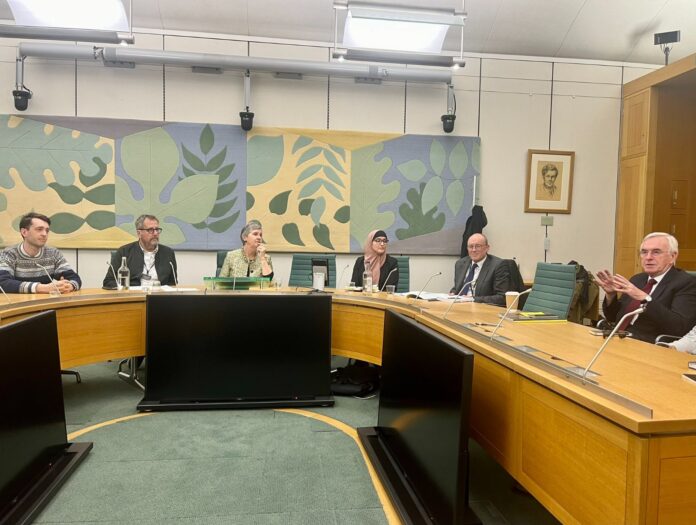Experts have warned about the dangers teenagers face in the education sector amid a “climate of fear” created by the government’s controversial counter-extremism Prevent strategy.
At a meeting in Westminster last week, Dr Layla Aitlhadj, Director and Senior Caseworker for Prevent Watch, stressed the disproportionate focus Prevent has on not only British Muslim communities but youngsters under the age of 20.
“There are between 6,000-7,000 referrals that occur every year, two thirds of those are under 20s. So these are children and young adults being affected.
“Based on last year’s statistics, we calculated that in every school day in England, at least six children under the age of fourteen are being referred to Prevent… It’s the education sector which makes more referrals, by far, which refers more suspects to Prevent than the police.”
The event, hosted at Portcullis House with Labour MP John McDonnell in attendance, highlighted how the education system is encouraging educators to strictly monitor their students and try to identify who among them could be a “potential terrorist.”
Another speaker, Thabo Huntgeburth, a research assistant at the London School of Economics and Political Science, spoke out about the Prevent training course required by university staff.
“It made me think back to Communist East Germany, it might be because I am German and we remain very diligent, for good reason with very diligent history classes. People under communism were ostracised and excluded from society as ‘terrorists.’
Subscribe to our newsletter and stay updated on the latest news and updates from around the Muslim world!
“People couldn’t work their job because they didn’t agree with the government. And public servants would have to nod along and say they agree with all government lines. And this is a system I can’t bare. And this was basically my experience (when learning about Prevent training).”
When introducing the Prevent Duty as an obligation on public authorities as part of its revised Counter Extremism Strategy in 2015, the government of the time declared that it sought to cooperate with international bodies including the United Nations.
But since then, a number of UN rapporteurs have expressed serious concerns about the impact of Prevent on civil liberties and human rights.
According to Fionnuala Ni Aolain, the UN Special Rapporteur on the promotion and protection of human rights and freedoms, while countering terrorism these recommendations exacerbate existing problems rather than mitigate them.
Despite UN concerns, the UK has stood by the contentious counter-extremism strategy, despite calls for a review.
On July 18, the Downing Street launched the CONTEST 2023 strategy, defining it as “a refreshed approach to the evolving and enduring threat from terrorism.”
This iteration incorporates a series of recommendations put forth by the boycotted Independent Review of Prevent, overseen by the controversial William Shawcross, who has reportedly expressed Islamophobic statements in the past, including: “Europe and Islam is one of the greatest, most terrifying problems of our future.”
In early November, 2023, Amnesty International issued a blistering attack on Prevent accusing the programme of severe human rights abuses and encouraging a culture of “thought policing.”
The human rights group additionally urged for the UK to abolish the strategy amid the growing concern over decay of people’s freedoms.
“The Prevent strategy rests on the idea that there is a causal relationship between undefined ‘extremist’ views and ideas, which may be espoused by lawful non-violent groups, and ‘terrorism’… But the alleged link between the two is not clearly articulated, nor is it clear where legality ends and potential criminality begins.”
Amnesty highlights official guidance that recommends people use their “gut feeling” before reporting concerns.






















